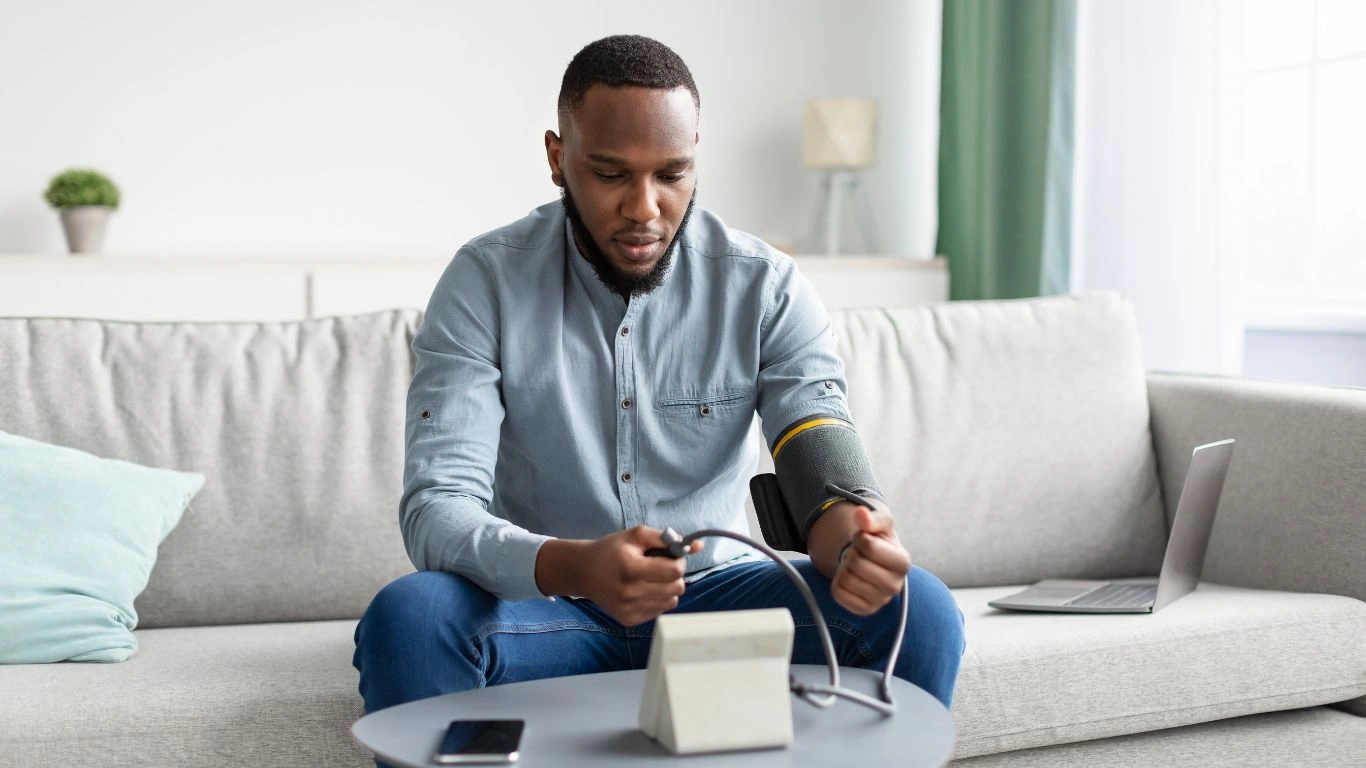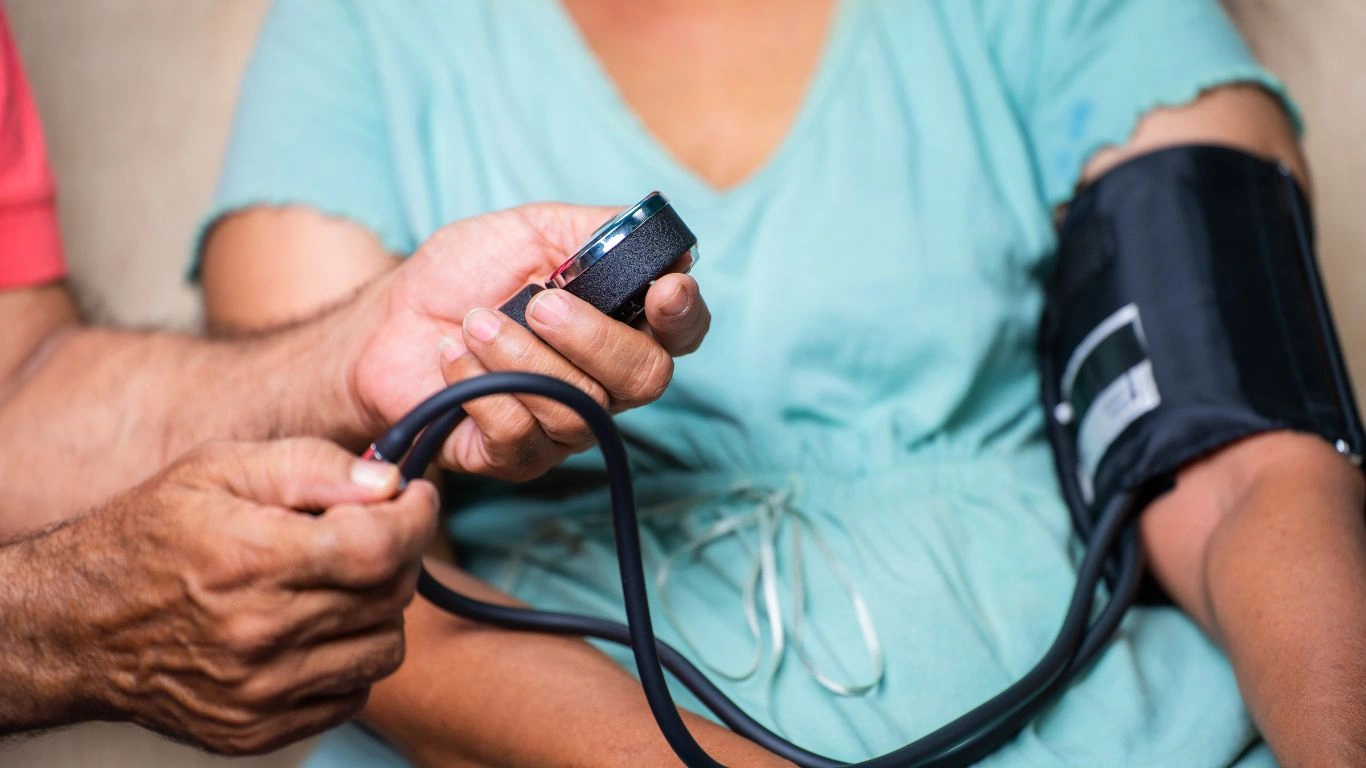Best Home Workouts for Hypertension 🏠💪: A Comprehensive Guide to Staying Healthy
If you’ve been told you have high blood pressure (or hypertension, fancy term), you’re probably thinking about what you can do to get it under control. Meds are important, sure, but did you know that moving your body can be just as powerful when it comes to managing your blood pressure? Don’t worry, though—you don’t need to sign up for a crazy gym membership to get started. There are home workouts for hypertension that can make a big difference in how you feel—and even your health stats.
Why Exercise Can Make a Difference 🏃♀️

So, why exactly should you care about exercise when you’ve got hypertension? Well, first off, it’s not just about getting your heart rate up for a few minutes. Exercise has some serious benefits:
- Lowering blood pressure: Regular exercise helps your heart pump more efficiently, which means it doesn’t have to work as hard. That’s a win for your blood pressure.
- Stress relief: If you’re anything like me, stress is a major trigger. Exercise helps you unwind and reduces those stress hormones (goodbye cortisol!).
- Stronger heart and overall health: Exercise isn’t just about lowering blood pressure; it also improves circulation, heart health, and can even help with managing cholesterol.
It doesn’t have to be extreme either—trust me, small changes can add up.
The Best Home Workouts for Hypertension 🧘♂️

Okay, let’s get to the fun stuff: the workouts! Now, I’m not talking about anything crazy that’ll leave you gasping for air. These are simple, low-impact exercises you can do right at home. Here are my top picks:
1. Walking (Or Marching in Place) 🚶♀️
You don’t need a treadmill to walk—just pace around your living room or march in place if you’re short on space. Walking is one of the easiest and most effective ways to lower blood pressure. I personally love going for a quick walk after dinner. It helps me digest, clears my head, and honestly, it’s just a nice way to unwind. Start with 20 minutes a day and build up from there. No sweat!
2. Yoga for Relaxation 🧘♀️
Yoga is like a double whammy for hypertension. It combines gentle movement with deep breathing, and both are great for stress relief. I’ve been doing yoga for years now, and let me tell you—it’s a game-changer. Poses like Child’s Pose, Mountain Pose, and Savasana (aka the “just lie down and breathe” pose) are awesome for lowering blood pressure. I love how centered and calm I feel after a session.
3. Strength Training (With Light Weights or Resistance Bands) 💪
Before you freak out and think, “No way I’m lifting weights!” let me clear that up. You don’t need to be throwing around dumbbells to get the benefits. In fact, using light weights or resistance bands is perfect for managing hypertension. Start with simple exercises like squats, shoulder presses, or bicep curls. You don’t have to go heavy—just focus on form and consistency. I personally use resistance bands a lot at home—super easy, and they really get the job done.
4. Tai Chi 🥋
Okay, I know, Tai Chi might sound a little “Zen master,” but it’s actually an awesome workout for managing blood pressure. The slow, flowing movements combined with deep breathing are perfect for reducing stress. My aunt swears by it for both her balance and her blood pressure, and she’s in her 70s! You don’t need to be super flexible to do it. In fact, Tai Chi is all about moving with intention and mindfulness, which is something we could all use a little more of.
5. Stationary Cycling 🚴♀️
If you’ve got a stationary bike at home, great! If not, you could always try a regular bike ride (but hey, we’re keeping this at home, so let’s stick with the stationary). Cycling is a killer cardio workout that can help reduce your blood pressure over time. Keep it light, though—nothing too intense. I love cycling at a chill pace for 30 minutes while catching up on a podcast. It’s a nice combo of cardio and relaxation.
How Often Should You Be Exercising? ⏰

Now, I know that life is busy, and you’re probably wondering how often you should actually work out to see results. The goal is to get at least 150 minutes of moderate-intensity exercise per week. That could be broken down into 30-minute sessions, five days a week. But hey, start small! If that sounds like a lot, aim for three days a week and build from there. Even just walking for 10-15 minutes daily can be a great start.
Troubleshooting Common Issues 🛠️

Let’s face it—nothing ever goes completely smooth, right? Here are a few issues people with hypertension (and even those who just don’t like working out) run into, and how to solve them:
1. Feeling Dizzy or Lightheaded
- What’s going on? Sometimes when you stand up quickly or work out, your blood pressure can drop, causing dizziness.
- What to do: Start slow with your warm-up, and don’t skip your cool-down. Also, hydration is key—make sure you’re drinking enough water before, during, and after your workout.
2. Joint Pain
- What’s going on? If you’re experiencing joint pain, it could be from high-impact workouts or poor form.
- What to do: Stick to low-impact exercises like yoga, walking, or cycling. Also, make sure you have comfy shoes and try gentle stretching before and after your workout.
3. Not Seeing Results Fast Enough
- What’s going on? You’ve been at it for a few weeks and still don’t see any change in your numbers.
- What to do: Remember, consistency is the secret sauce. Keep it up! It can take a few weeks to see blood pressure improvements. Pair your workouts with healthy eating and plenty of sleep.
Case Studies / Success Stories 🌟
John’s Journey to Better Health
John, a guy I met at the gym (before everything went virtual), had struggled with hypertension for years. His doctor suggested he add exercise to his routine, so he started with brisk walks and some light yoga. Three months later, his blood pressure was down, he felt less stressed, and he was feeling more energized. It wasn’t a huge overnight change, but consistency paid off.
Sarah’s Tai Chi Success
Sarah, one of my mom’s friends, decided to try something new to help with her blood pressure after a diagnosis. She started doing Tai Chi three times a week, along with some gentle strength training with resistance bands. After six months, her doctor was impressed with her improved numbers, and she felt more flexible and balanced than ever before.
Key Takeaways 📝
Here’s the scoop: Home workouts for hypertension are a game-changer. Here’s what I want you to take away:
- Start slow, and stick with low-impact exercises like walking, yoga, and Tai Chi.
- Aim for at least 150 minutes of exercise per week. Even small changes add up.
- Hydrate, take breaks when you need them, and don’t forget your warm-ups and cool-downs.
- Stay consistent. Results take time, but they’re so worth it.
Frequently Asked Questions (FAQs) 🤔
Q1: Can I do high-intensity workouts if I have hypertension?
A1: It’s best to stick to moderate exercises like walking, yoga, and Tai Chi. High-intensity workouts can cause spikes in blood pressure, which isn’t what we’re aiming for here.
Q2: How long will it take to see results?
A2: It depends on the person, but usually, you’ll start seeing some improvements in 4-6 weeks. Keep at it, and don’t get discouraged.
Q3: Do I need to stop my medication if I start working out?
A3: Nope! Always talk to your doctor before starting any new exercise routine—especially if you’ve been diagnosed with hypertension.
Q4: What if I get bored?
A4: Switch it up! Try a new workout, listen to music, or even join a virtual class for extra motivation.
References 🔗
Disclaimer ⚠️
This is just advice from one person to another. Always check with your doctor before starting any new exercise routine—especially if you’ve been diagnosed with hypertension.
Call to Action 🎯
So, what are you waiting for? Time to get moving and give those home workouts a shot. Whether it’s walking, yoga, or even a little Tai Chi, it’s all about making small changes that add up over time. Let’s do this!






